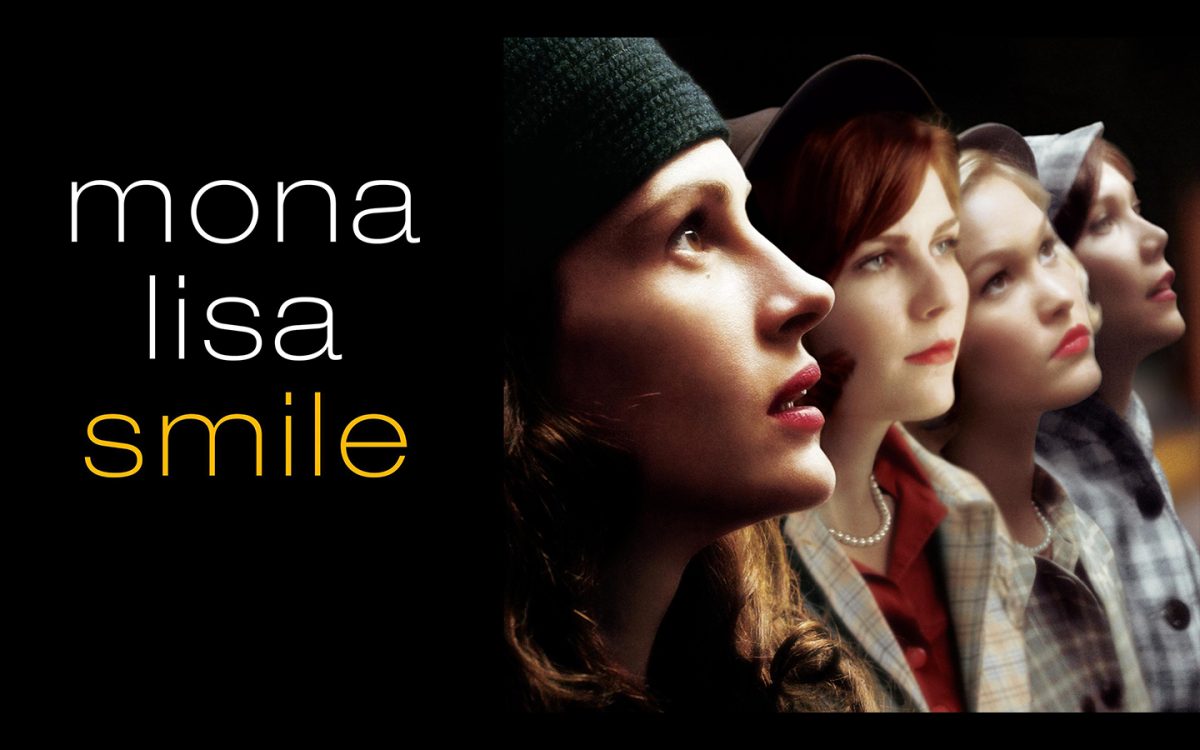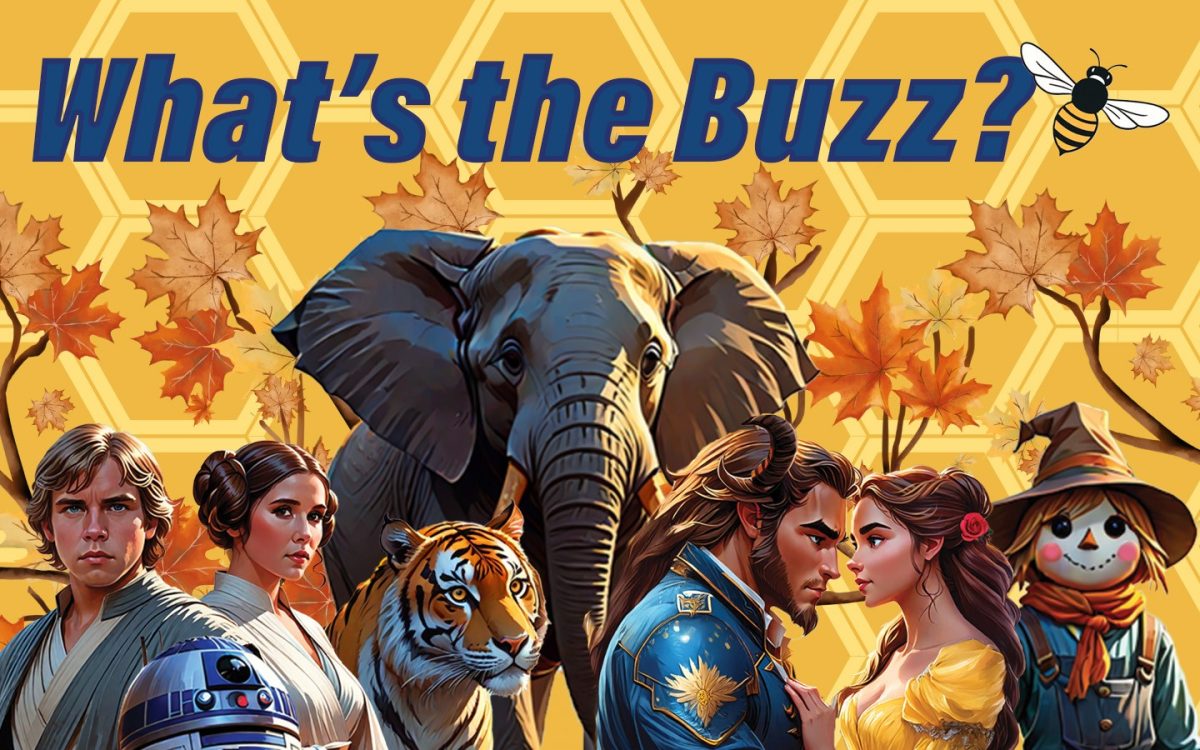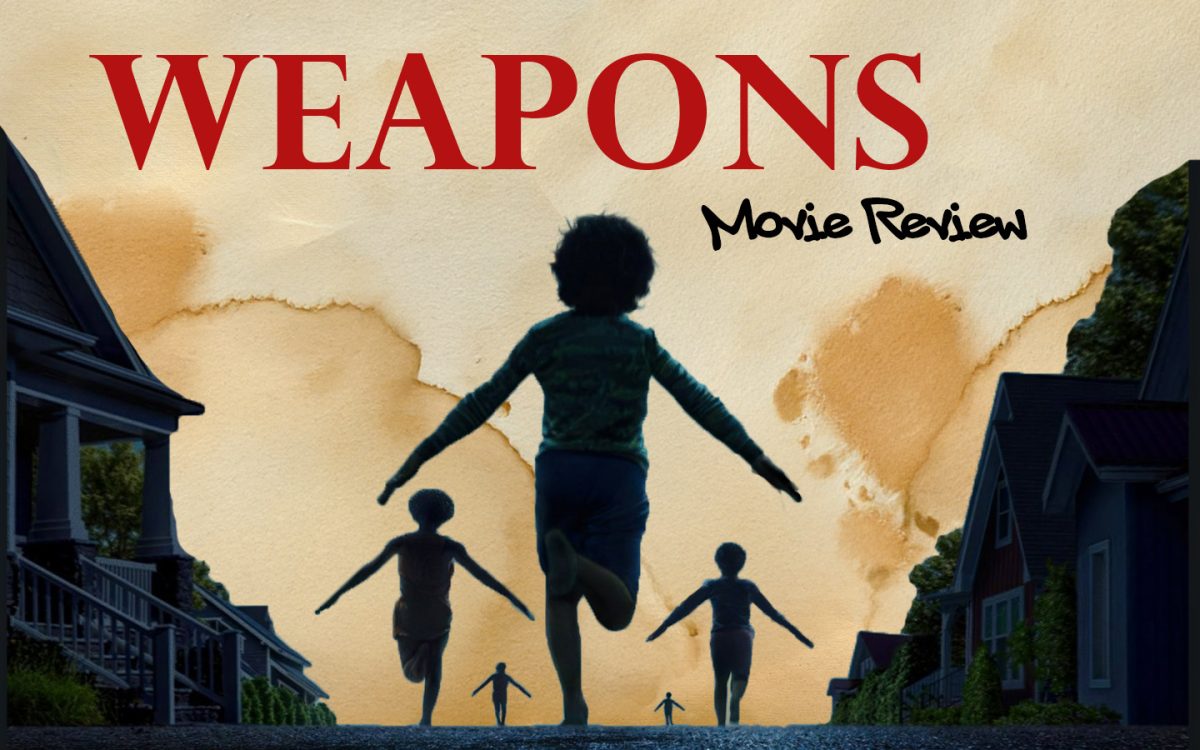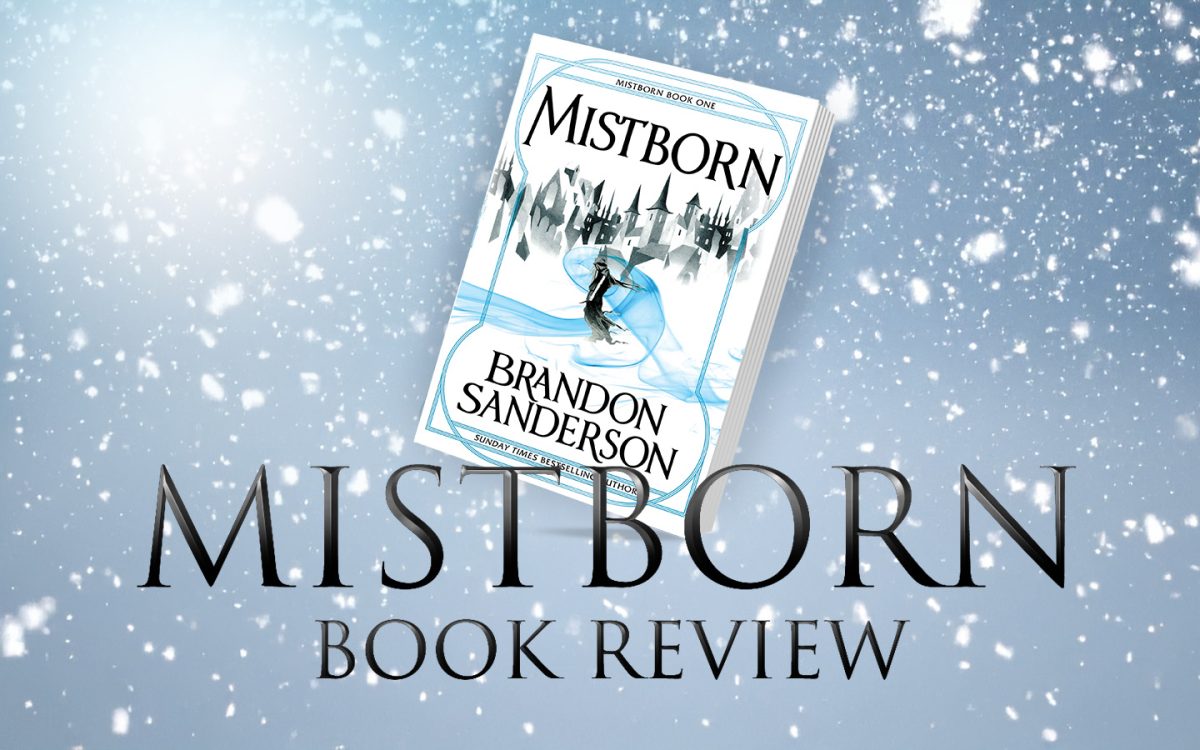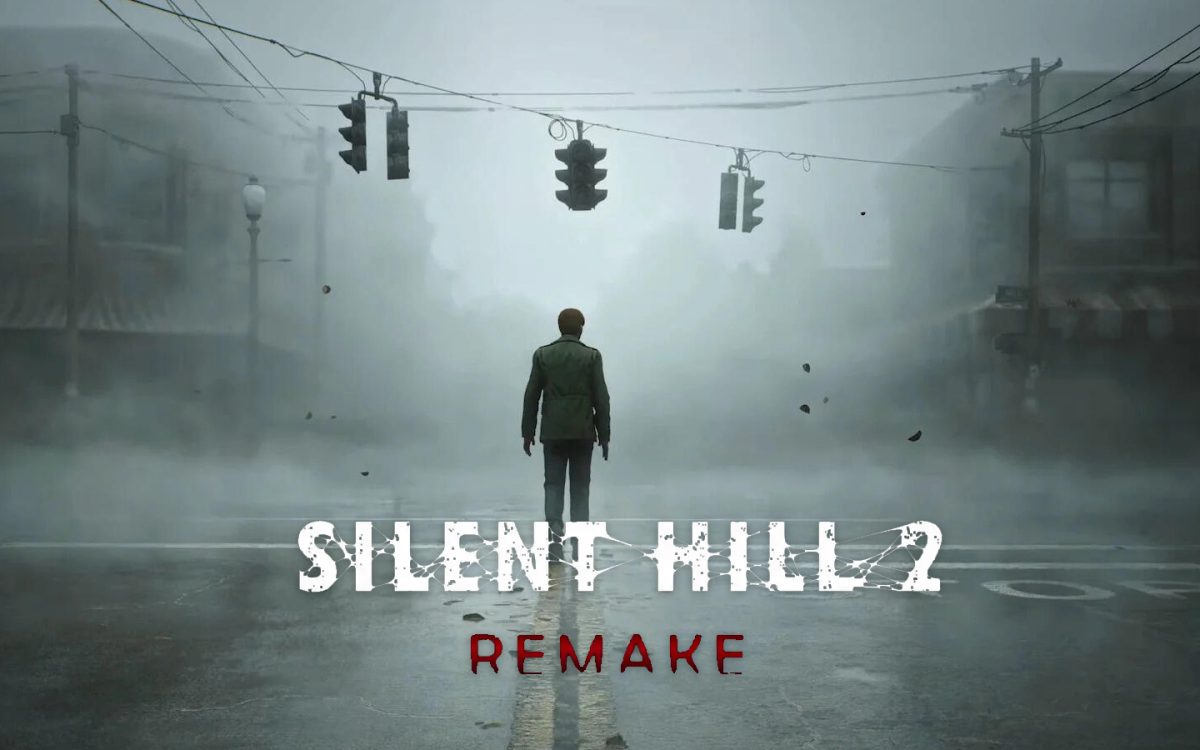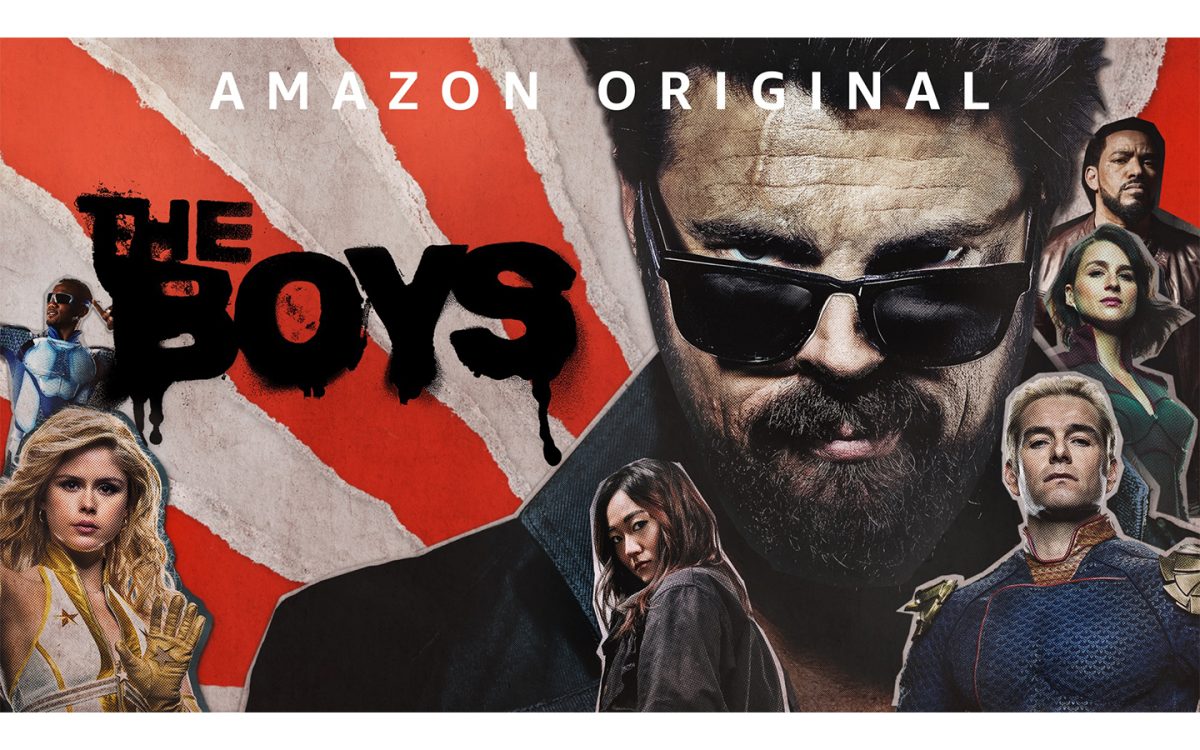“Mona Lisa Smile”
PG-13
Genre: Adult Drama
Runtime: 117 Minutes
Rating: 5/5
Featuring the 2003 film, “Mona Lisa Smile,” a star-filled cast with Julia Roberts, Kristen Dunst, Julia Stiles and Maggie Gyllenhaal come together to act in a movie questioning society’s belief in women’s futures.
Employed as the new art-history teacher at Wellesley College, Katherine Watson, played by Roberts, begins her first day as an art teacher being completely embarrassed by her know-it-all students. With a new approach on her second day, she comes prepared and asks them, “what makes art good and who decides?” With this not being in the heavily studied syllabus, none of the girls in the class know how to answer. This begins Watson’s lesson that women can have an input in decisions. Including whether or not they wish to marry.
Over the duration of her time teaching, Watson becomes close with two of her students, Betty Warren, played by Dunst, and Joan Brandwyn, played by Stiles, in different ways.
Warren, a woman strict in her ways with an even stricter mother, takes liberty of her position in the newspaper, maliciously criticizing Watson’s beliefs. With her status, power and position of being a step away from being married, she makes it known that she heavily disagrees with Watson and her ideas of marriage.
Brandwyn, however, is quite taken with Watsons ideas. Bestfriends with Warren and on her own path to becoming a married woman, she plays with the idea that she can also have a career of her choice. Watson insists that Brandwyn apply to Yale for her interest in law. However, Warren catches wind of this and steps in the way, remaining clear that to be married is a woman’s job.
Through art, a little after class get-together and her own romance with a fellow teacher, Watson gets an eye-opening experience to the lives of her students.
This movie brings forth an academic feminist vibe that truly grasps the idea of letting women express themselves in whatever they wish. It takes Watson on her own adventure in her life that she assumed was already so correct, and lets the audience know that it’s okay to change your views. Every character in the movie represents a different view of feminism, but it isn’t as obvious as it may seem. Like most movies, It takes until the very end for each view to paint a complete and beautiful picture.
“Mona Lisa Smile” shows that it is in the hands of women whether they wish to work, marry or both.



